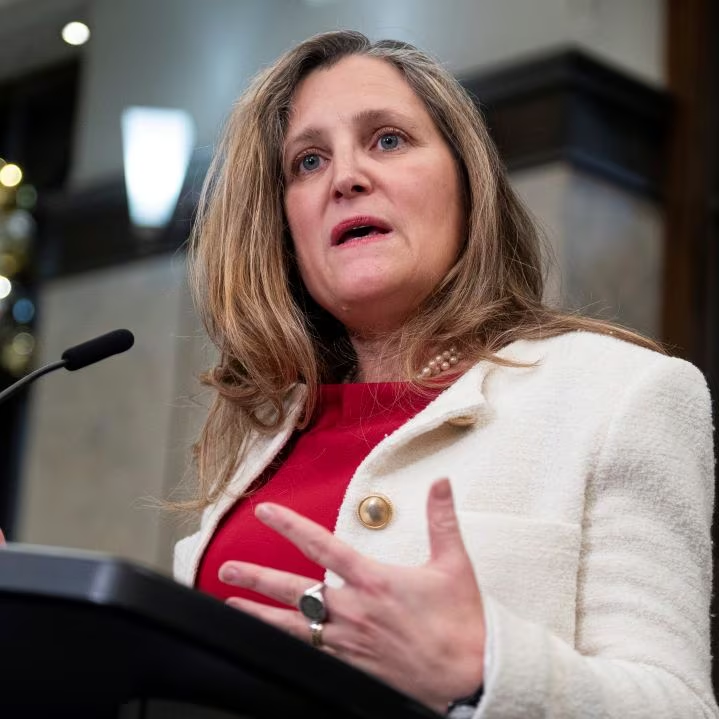On December 16, 2024, Chrystia Freeland resigned from her positions as Canada’s Finance Minister and Deputy Prime Minister, citing significant policy disagreements with Prime Minister Justin Trudeau. Her resignation comes at a critical juncture, with the Liberal government facing declining popularity and upcoming economic challenges.
Key Points:
- Policy Disagreements: Freeland’s resignation letter highlights her opposition to what she describes as “costly political gimmicks,” such as proposed sales tax holidays and direct payments to citizens. She advocates for fiscal prudence, especially in light of potential economic challenges posed by the incoming U.S. administration’s aggressive trade policies.
- Economic Concerns: Freeland emphasizes the need for Canada to prepare for potential economic challenges, including the possibility of a 25% tariff on Canadian goods by the incoming U.S. administration. She stresses the importance of prudent fiscal management and collaboration across provinces to effectively respond to such external economic threats.
- Political Implications: Freeland’s departure is a significant blow to Prime Minister Trudeau’s government, which is already grappling with declining approval ratings and internal dissent. Her resignation may exacerbate existing challenges within the Liberal Party, raising questions about the government’s stability and policy direction ahead of the 2025 elections.
- Future Plans: Despite stepping down from her cabinet positions, Freeland intends to continue serving as a Member of Parliament and plans to run for re-election in Toronto. Her ongoing political involvement suggests she will continue to influence Canadian politics, potentially advocating for fiscal responsibility and economic preparedness.
Economic Impact:
Freeland’s resignation has already had tangible effects on financial markets. The Canadian dollar experienced volatility, reaching its lowest level in four and a half years against the U.S. dollar before rebounding. Additionally, Canadian bond yields have risen as investors assess the fiscal implications of her departure.
Conclusion:
Chrystia Freeland’s resignation underscores significant policy rifts within Canada’s leadership, particularly concerning fiscal strategy and economic preparedness. As the Liberal government navigates these internal challenges and external economic threats, Freeland’s departure marks a pivotal moment in Canadian politics, with potential implications for the nation’s economic policy and political landscape.





